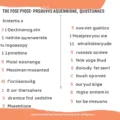Understanding Moral Injury
Moral injury refers to the psychological distress that results from actions or lack of actions which violate one’s ethical or moral beliefs. Unlike PTSD, which stems from threats to one’s own safety, moral injury comes from being involved in or witnessing situations that transgress deeply held beliefs about right and wrong.
Common causes of moral injury include combat situations, sexual assault, failing to prevent harm to others when one had a duty to act, or being betrayed by leaders one trusted. The painful dissonance between core values and experiences can lead to deep shame, guilt, and loss of trust in oneself or others.
Healing from Moral Injury
Recovering from moral injury is a process that necessitates patience, self-compassion, and reconciliation between actions and beliefs. Some helpful strategies include:
- Allowing oneself to grieve losses and process painful emotions
- Seeking connection through community groups, counseling, or reconciliation programs
- Considering the context and systemic factors that shaped the situation
- Cultivating inner wisdom through practices like meditation or journaling
- Committing to personal growth and making amends where possible
While moral injury may never fully heal, over time many do find meaning and purpose through deeper understanding of themselves and the human condition.
Promoting Moral Resilience
On a societal level, we can help prevent moral injury by:
- Providing ethics training and support for those in high-risk roles
- Holding institutions accountable for creating psychologically safe environments
- Fostering open dialogues about the moral dimensions of trauma
Structural changes are needed alongside individual healing. By advocating for moral resilience across all levels of society, we take steps towards preventing moral injury in the first place.
Frequently Asked Questions
What causes moral injury?
Moral injury is caused by being involved in, witnessing or learning about experiences that violate deeply held moral beliefs and expectations. Common causes include combat trauma, sexual assault, betrayal by leaders, failing to prevent harm, or making decisions that contradict moral values.
How is moral injury different than PTSD?
While both involve psychological trauma, PTSD stems from threats to one’s personal safety or wellbeing. Moral injury comes from violations of ethical or moral beliefs, which creates dissonance between actions and core values about right and wrong.
What are some symptoms of moral injury?
Common symptoms include shame, guilt, loss of trust, social withdrawal, loss of meaning, difficulty forgiving oneself or others, self-harm behaviors, and loss of spiritual faith or religious estrangement.
How do you treat moral injury?
Treatment necessitates reconciling experiences with moral belief systems. Helpful strategies involve processing painful emotions through counseling, fostering understanding through dialogue with others, journaling, spiritual practices, making amends when possible, and committing to personal growth.
How can society prevent moral injuries?
Prevention requires promoting moral resilience across all levels of society. This involves ethics training, accountability for unethical environments, open dialogues about moral trauma, and structural changes to address root causes. Though complex, prevention is key alongside healing for those already affected.









